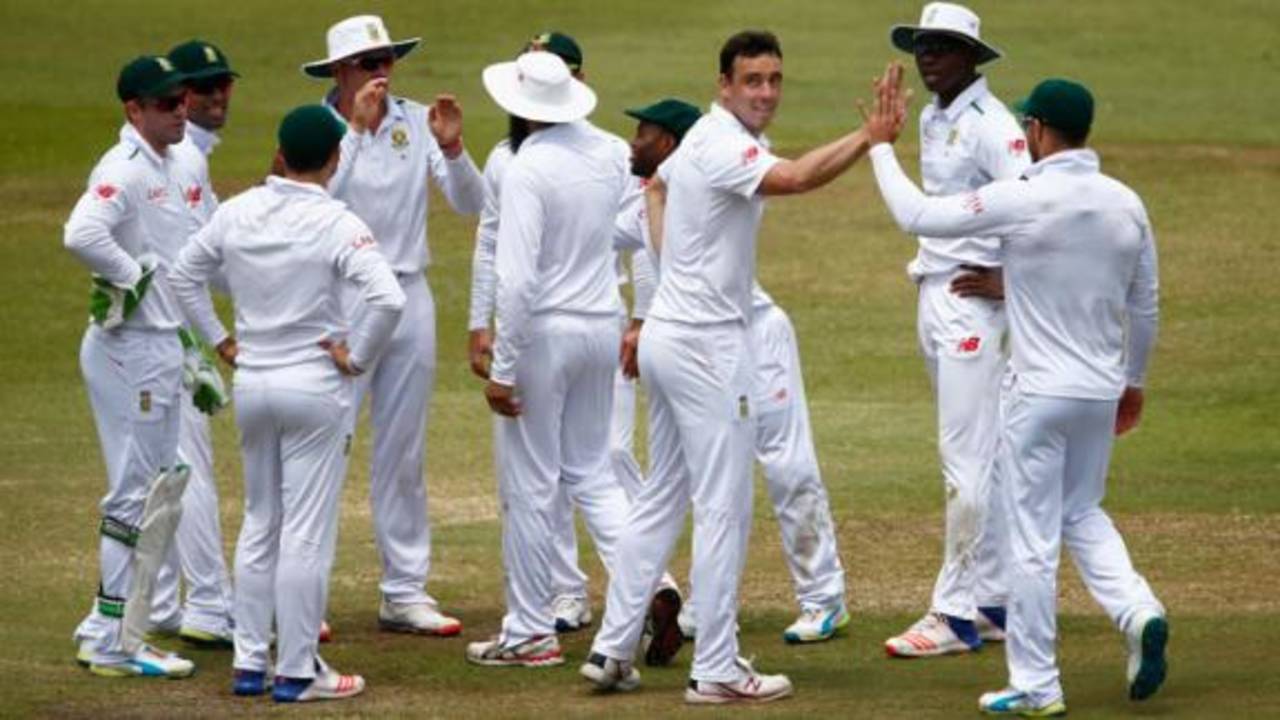CSA punished for slow transformation
South Africa's sports minister Fikile Mbalula has punished CSA for failing to meet transformation guidelines, barring it from hosting or bidding for any major international tournaments
Firdose Moonda
25-Apr-2016
Cricket South Africa will not be allowed to host or bid for any major international tournaments after failing to meet transformation guidelines. South Africa's sports minister, Fikile Mbalula, imposed the sanction after receiving the annual transformation report from the eminent person's group (EPG), a ministerially appointed independent committee. The same punishment was meted out to the rugby, athletics and netball federations, and the decision will be reviewed next year.
South Africa is not due to host any senior-team ICC events until at least 2023 but is scheduled to stage the under-19 World Cup in 2020. The sanction effectively means CSA cannot lobby or express interest in any other tournaments until Mbalula has cleared them.
Cricket is one of a "big five" of South African sporting federations that signed a memorandum of understanding with the sports ministry last May underlining a five-year strategic plan and commitment to change. The specifics of each federation's targets have not been made public but there was a general 60% players-of-colour target across national representative men's teams. CSA fell short of that, with 55% of their team made up of players of colour and 45% white.
The other major area under consideration was black African representation, which has become a pressing issue in the country. Mbalula explained there was both a moral and strategic need to increase black African representation. "It is the right thing to do considering the grave injustices of the past but there is also the reality that 84% of the country's under-18 population is black African. To ignore this from a sustainability perspective alone will be suicidal," Mbalula said. CSA only had 9% black African representation in the national team.
The report also covered coaching structures and administrative positions, and found, across all platforms, that the rate of transformation in South African sport remained too slow. "The projections (for demographic representation) stretch into 2030 and 2040. We cannot have that," Willie Basson, a member of the EPG and a former CSA acting president, said.
Like Mbalula, Basson noted that the demographics of the South African population must be reflected in national teams. "If we cannot mobilise the black Africanisation in our sport, we will pay the consequence in the not so distance future," he said.
The report praised the CSA for being one of the forerunners of transformation data collection along with rugby. "They have assigned dedicated resources to transformations data while many other codes are doing it on a part-time basis," Basson said. Both CSA and the South African Rugby Union have transformation committees in place, which Mbalula has now made a requirement for all sports federations.
The process of reviewing transformation is now in its third year and will continue to be undertaken until South African teams are considered adequately representative. Federations who fail to meet the transformation targets can face sanctions that also include suspension of government funding, withdrawing government recognition of the federation as a national federation - which would impact their ability to compete internationally - and withdrawing political support for endorsements and sponsorships.
Firdose Moonda is ESPNcricinfo's South Africa correspondent
